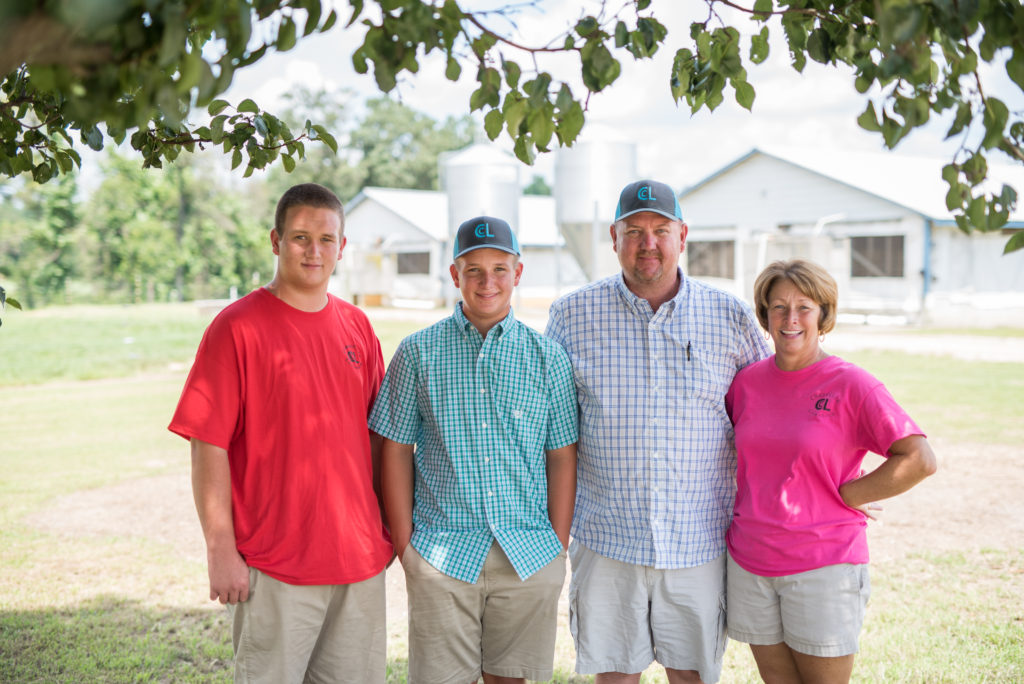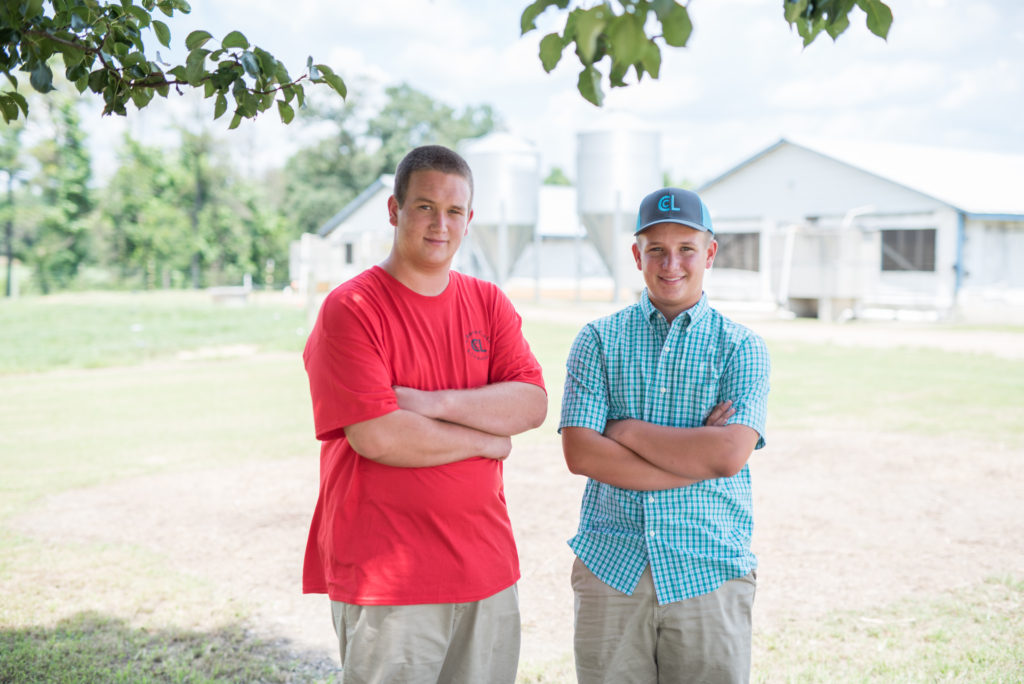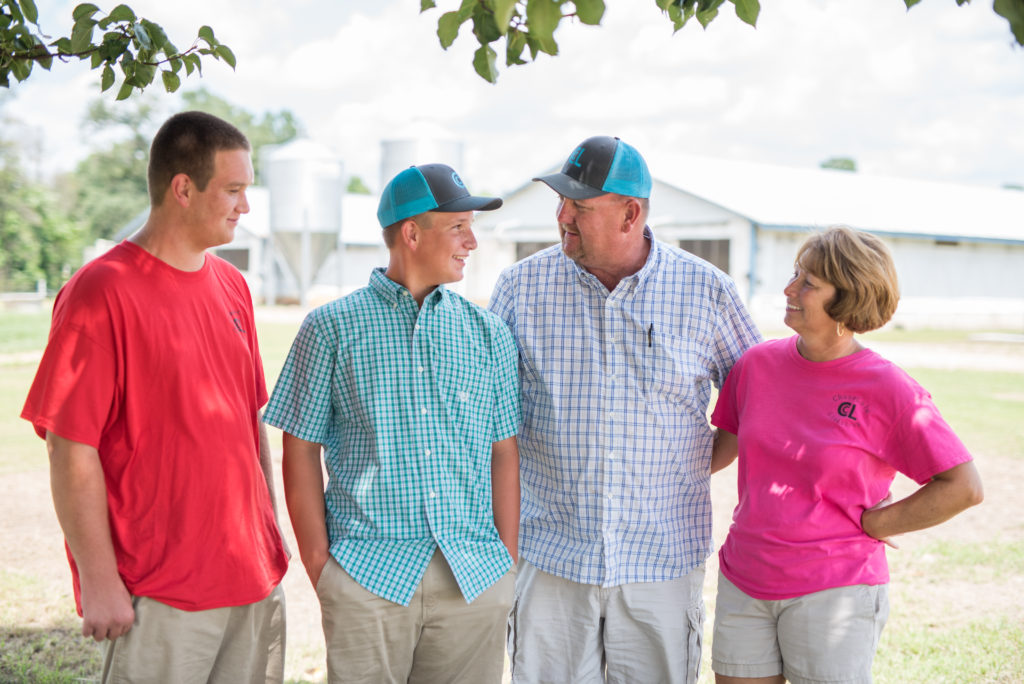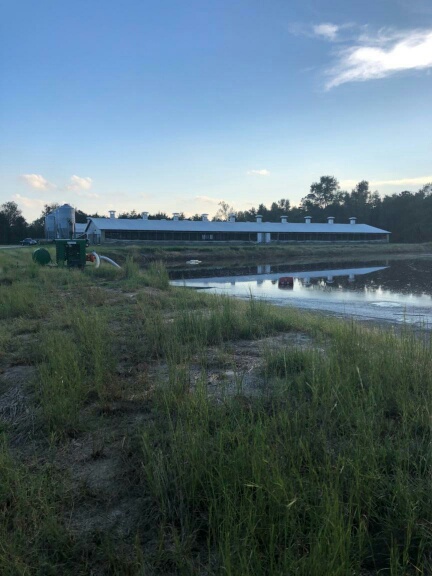For the Matthis family, farming is a family affair. Everyone has a part to play, and they work together to get things done. When it comes to farming, family is their favorite part about it.
Scott and Melanie Matthis, and their two boys, Chasen (18) and Colbey (15) grow hogs, cattle, turkeys and hay on their Sampson County Farm. Scott grew up on a local farm growing row crops and tobacco. Melanie grew up in the area, but was a "city girl"... that is until she met Scott and came to the farm. She's fell right in and fell in love with the farm life. In 1990, they built two hog houses. Later, they would grow their farm to a total of 6 hog houses, 110 Simmental cattle, and lease a turkey farm. Melanie manages the turkeys while the boys do the cattle, hogs, and hay. Scott works full-time with Prestage Farms as their Cattle Manager. Although gone much of the day, he goes straight to work from one full-time job to another--Cattle Manager to farmer. You could say that he really enjoys the agriculture life.
The apple doesn't fall far from the tree, though. Chasen and Colbey love the farm life too. While Chasen prefers work on the tractor cutting hay and tending to crops, Colbey would rather be working with the animals, especially the pigs. Despite each of the Matthis boys having a favorite aspect of the farm, they are both adept in all areas, pitching in wherever needed. Both can drive a tractor like it is second-nature and both show livestock in 4-H. The two also know how growing up on a farm has helped them.
"I've learned responsibility," said Colbey and Chasen added that "I've developed a strong work ethic thanks to living on a farm."
For their parents, their greatest hope is for their sons to take over the farm one day."Our hope for the future is that our boys will come back and run it. They are the reason that we do what we do," said Melanie.
And what the Matthis family does, is work hard to make sure they are sustainable. They want this farm to last for generations to come. Part of that is to do things the right way and respect their neighbors.
"Being a good neighbor means everything. We live on the land too. We don't want to do anything to harm the environment because we live here," said Scott.
Melanie echoed her husband's sentiments. As a mom raising two boys on the farm, she knows first-hand the importance of doing things the right way.
It isn't always easy on the farm, though. The family could all agree that working 365 days a year with very few vacations or time off isn't easy. Yet, the best and hardest parts about farming are integrally weaved together for the Matthis family. Late nights cutting hay and early mornings caring for animals isn't always fun, but it also allows them to work more together as a family. In the end, it is all worth it.
The Matthis family is committed to farm life and are invested in it. If they aren't working on the farm, you may find them on the road headed to a 4-H livestock show. When Scott isn't working one of his full-time jobs, he is serving on the NC Purebred Angus Board, Simmental Cattle Board, and the Sampson County Cattleman's Association Board. They lead a full life that is filled with agriculture, but at the center of it all is family.Farming is a family affair for the Matthis Family.
Photos by: M. See Creative
















